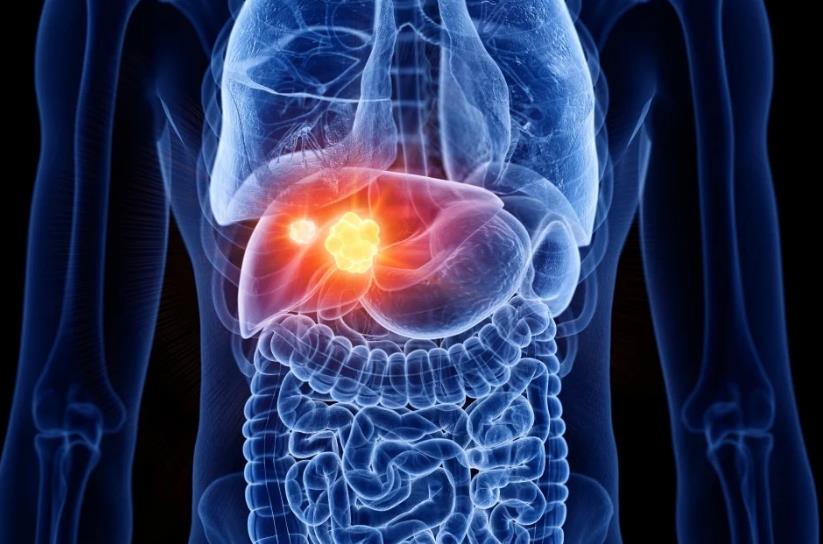Protein arginine methyltransferases (PRMTs) are a family of enzymes that modify proteins by adding methyl groups to arginine residues. PRMTs are involved in many biological processes, such as gene expression, DNA repair, signal transduction, and cell differentiation. However, PRMTs also play a role in the development and progression of various cancers, including hepatocellular carcinoma (HCC), the most common type of liver cancer.
HCC is a highly aggressive and lethal malignancy that often develops in the context of chronic liver inflammation and fibrosis. The tumor microenvironment (TME) of HCC is characterized by hypoxia, abnormal angiogenesis, acidification, inflammation, and immunosuppression. These factors contribute to the immune evasion and resistance of HCC cells to conventional therapies. Therefore, understanding the molecular mechanisms of the interaction between HCC cells and the immune system is crucial for developing novel and effective immunotherapies.

PRMTs Regulate the Expression of Immune Checkpoint Molecules
One of the strategies that HCC cells use to escape from the immune surveillance is to express immune checkpoint molecules, such as programmed cell death protein 1 (PD-1) and its ligand PD-L1. These molecules bind to each other and inhibit the activation and function of T cells, the main effector cells of the anti-tumor immune responseSeveral studies have shown that PRMTs can regulate the expression of PD-L1 and other immune checkpoint molecules in HCC cells.
For example, PRMT1, the most abundant and widely expressed PRMT, can directly methylate the promoter region of PD-L1 and enhance its transcription in HCC cells. PRMT1 also indirectly increases PD-L1 expression by activating the transcription factor STAT3, which binds to the PD-L1 promoter and stimulates its transcription. Moreover, PRMT1 can methylate and activate NF-κB, another transcription factor that regulates PD-L1 expression. Therefore, PRMT1 acts as a positive regulator of PD-L1 expression in HCC cells.
In contrast, PRMT5, another PRMT that catalyzes the symmetrical dimethylation of arginine residues, acts as a negative regulator of PD-L1 expression in HCC cells. PRMT5 can methylate and inhibit the transcriptional activity of STAT3, thereby reducing PD-L1 expression. PRMT5 also suppresses the expression of other immune checkpoint molecules, such as PD-L2, B7-H3, and B7-H4, in HCC cells. Furthermore, PRMT5 can methylate and inactivate the histone deacetylase HDAC11, which leads to the increased acetylation and stability of p53, a tumor suppressor that inhibits PD-L1 expression. Therefore, PRMT5 acts as a tumor suppressor and an immune enhancer in HCC.
PRMTs Modulate the Function of Immune Cells in the TME of HCC
Another way that PRMTs influence the immune response in HCC is by modulating the function of immune cells in the TME. The TME of HCC is composed of various types of immune cells, such as macrophages, dendritic cells, natural killer cells, and T cells. These immune cells can either promote or inhibit the anti-tumor immune response, depending on their polarization and activation statusSeveral studies have shown that PRMTs can affect the polarization and activation of immune cells in the TME of HCC.
For instance, PRMT1 can promote the polarization of macrophages from the anti-tumor M1 phenotype to the pro-tumor M2 phenotype in the TME of HCC. PRMT1 can methylate and activate the transcription factor C/EBPβ, which induces the expression of M2-associated genes, such as IL-10, ARG1, and CD206, in macrophages. PRMT1 also inhibits the expression of M1-associated genes, such as TNF-α, IL-12, and iNOS, in macrophages. Therefore, PRMT1 induces an immunosuppressive and tumor-promoting macrophage phenotype in the TME of HCC.
On the other hand, PRMT5 can inhibit the polarization of macrophages from the M1 phenotype to the M2 phenotype in the TME of HCC. PRMT5 can methylate and inactivate the transcription factor IRF4, which induces the expression of M2-associated genes in macrophages. PRMT5 also enhances the expression of M1-associated genes in macrophages. Therefore, PRMT5 induces an immunostimulatory and tumor-inhibitory macrophage phenotype in the TME of HCC.
PRMTs as Potential Targets for Immunotherapy of HCC
The role of PRMTs in the immune response in HCC suggests that PRMTs may be potential targets for immunotherapy of HCC. Immunotherapy is a promising strategy for the treatment of HCC, as it aims to enhance the anti-tumor immune response and overcome the immune evasion and resistance of HCC cells. However, the clinical efficacy of immunotherapy for HCC is still limited, as only a subset of patients respond to the current immunotherapeutic agents, such as immune checkpoint inhibitors. Therefore, there is a need to identify new targets and strategies for immunotherapy of HCC.
Several studies have shown that targeting PRMTs can enhance the anti-tumor immune response and improve the efficacy of immunotherapy in HCC. For example, inhibiting PRMT1 with small molecule inhibitors or genetic knockdown can reduce the expression of PD-L1 and other immune checkpoint molecules in HCC cells, and increase the infiltration and activation of T cells in the TME of HCC. Inhibiting PRMT1 can also reverse the M2 polarization of macrophages and induce the M1 polarization of macrophages in the TME of HCC. Therefore, inhibiting PRMT1 can enhance the anti-tumor immune response and sensitize HCC cells to immune checkpoint inhibitors.
Similarly, activating PRMT5 with small molecule activators or genetic overexpression can reduce the expression of PD-L1 and other immune checkpoint molecules in HCC cells, and increase the infiltration and activation of T cells in the TME of HCC. Activating PRMT5 can also reverse the M2 polarization of macrophages and induce the M1 polarization of macrophages in the TME of HCC. Therefore, activating PRMT5 can enhance the anti-tumor immune response and sensitize HCC cells to immune checkpoint inhibitors.
In summary, PRMTs are important regulators of the immune response in HCC, as they modulate the expression of immune checkpoint molecules in HCC cells and the function of immune cells in the TME of HCC. Targeting PRMTs may be a novel and effective strategy for immunotherapy of HCC, as it can enhance the anti-tumor immune response and overcome the immune evasion and resistance of HCC cells. Further studies are needed to elucidate the molecular mechanisms and clinical implications of PRMTs in the immune response in HCC.
